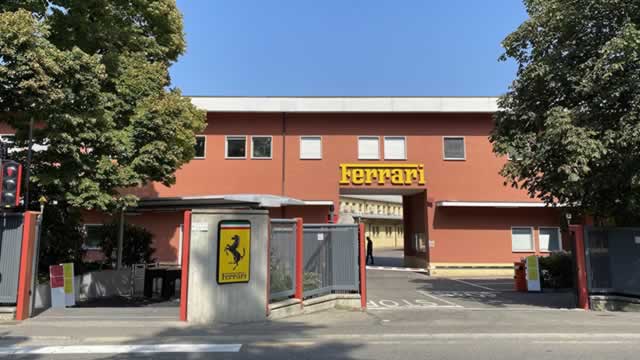Comcast’s Conglomerate Structure: A Hindrance to Stock Performance
In a recent research note, a Wolfe Research analyst raised concerns about Comcast Corporation’s (CMCSA) conglomerate structure and its potential impact on the company’s stock performance. The media and technology conglomerate, which operates businesses ranging from cable television and broadband services to theme parks and film production, has been under scrutiny due to its complex business model.
The Argument Against Conglomerate Structures
The Wolfe Research analyst argued that the conglomerate structure makes it challenging for investors to value individual business segments and assess their financial performance. Moreover, the analyst suggested that the various business units within Comcast may not be aligned with each other, leading to potential inefficiencies and resource misallocation.
Impact on Shareholders
For shareholders, the conglomerate structure can result in several negative consequences. First, it may limit the potential for share price appreciation as investors may be hesitant to invest in a company with a complex business model. Second, it can make it more difficult for shareholders to identify which segments are driving growth and which are underperforming. Lastly, the conglomerate structure may lead to lower returns on equity due to the potential for resources being spread thin across various business units.
Impact on the World
Beyond Comcast, the debate surrounding conglomerate structures is not a new one. The argument against such structures extends beyond the investment community and has implications for the broader business world. Critics argue that conglomerates can create inefficiencies, hinder innovation, and limit the ability of companies to focus on their core competencies. On the other hand, proponents of conglomerates argue that they offer diversification benefits, reduce risk, and can lead to synergies between business units.
Splitting Up Comcast?
The Wolfe Research analyst did not suggest a specific solution for Comcast, but some have proposed that the company could split up its various business units to improve transparency and focus. This could involve spinning off certain business segments, such as NBCUniversal or Sky, into separate publicly traded companies. However, such a move would come with its own set of challenges, including potential tax implications and operational complexities.
Conclusion
The debate surrounding Comcast’s conglomerate structure is a complex one, with valid arguments on both sides. While some investors and analysts argue that the structure is holding back the stock, others see benefits in the diversification and synergies that come with operating multiple businesses. Ultimately, the decision of whether or not to restructure Comcast will depend on the company’s leadership and their vision for the future. As investors, it’s essential to stay informed and continue to monitor the situation closely.
- Comcast Corporation operates a diverse range of businesses, including cable television, broadband services, theme parks, and film production.
- A Wolfe Research analyst raised concerns about the company’s conglomerate structure and its impact on stock performance.
- The complex business model makes it challenging for investors to value individual business segments and assess their financial performance.
- The various business units may not be aligned, leading to potential inefficiencies and resource misallocation.
- The conglomerate structure can limit potential for share price appreciation and lower returns on equity.
- Critics argue that conglomerates can create inefficiencies, hinder innovation, and limit focus on core competencies.
- Some have proposed that Comcast could split up its business units to improve transparency and focus.





